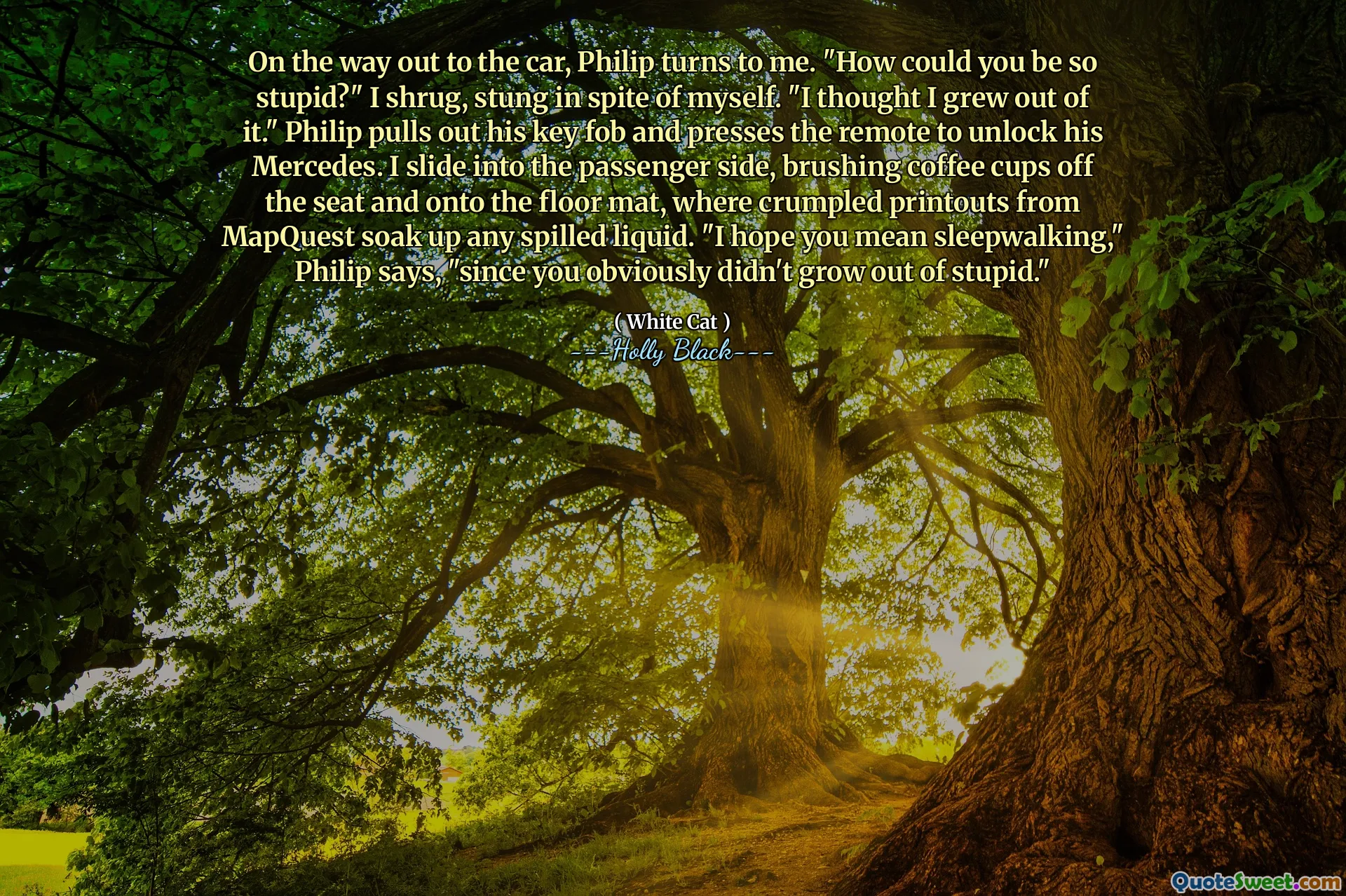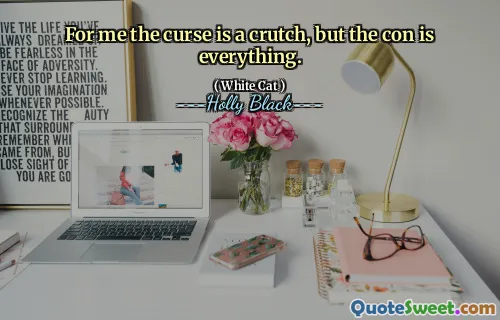
On the way out to the car, Philip turns to me. "How could you be so stupid?" I shrug, stung in spite of myself. "I thought I grew out of it." Philip pulls out his key fob and presses the remote to unlock his Mercedes. I slide into the passenger side, brushing coffee cups off the seat and onto the floor mat, where crumpled printouts from MapQuest soak up any spilled liquid. "I hope you mean sleepwalking," Philip says, "since you obviously didn't grow out of stupid."
This passage captures a candid and somewhat humorous interaction between two characters, revealing the complexities of their relationship and highlighting moments of vulnerability mixed with banter. Philip’s blunt question—"How could you be so stupid?"—strikes a nerve, reflecting a sharp mix of frustration and concern. The speaker’s response, a shrug paired with an admission of feeling stung, conveys a genuine moment of human fallibility. It’s the kind of exchange that many readers can relate to: friendly teasing that masks deeper emotional currents, where the jagged edges of hurt coexist with affection.
Philip’s quip about hoping the speaker means "sleepwalking" rather than being inherently "stupid" deepens this dynamic. It's playful but pointed, implying that while mistakes happen, there’s a hope or expectation for growth and learning. The imagery of messy coffee cups and MapQuest printouts soaking up spills adds textured reality to the scene, grounding the dialogue in everyday life. It subtly hints at disorder or chaos in the speaker’s world or mind, perhaps symbolizing the struggles they face.
Overall, the quote elegantly balances humor and seriousness while portraying a slice-of-life moment that explores themes of imperfection, disappointment, and the ongoing challenge of personal development. The interaction reminds us that intelligence and growth aren't linear, and people often grapple with their own shortcomings amidst the messiness of life.







